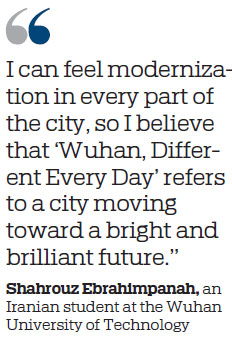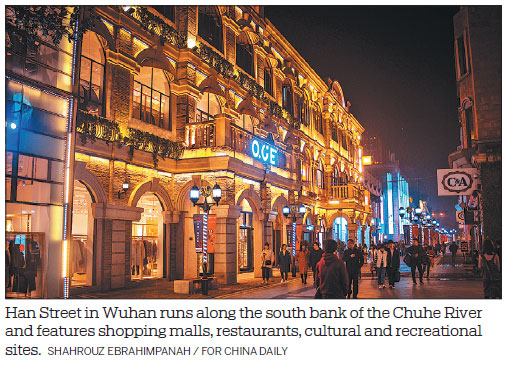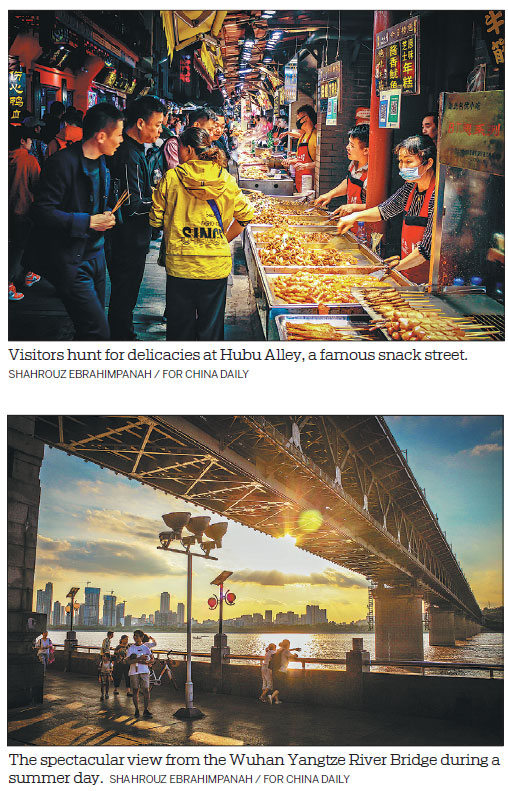'Truly different' more than just a slogan for city, claims Iranian
"Wuhan is truly different every day!" Many expatriates living in Wuhan quote the city's slogan to describe the rapid development around the area.
Having lived in Wuhan for the past five years, Shahrouz Ebrahimpanah, an Iranian student at the Wuhan University of Technology, has experienced the process of urbanization and internationalization, and of course, the resulting changes that benefit him as well as 10 million other residents.
Ebrahimpanah started his master's degree education at Wuhan University of Technology in 2013. He was impressed by the diverse culture and long, rich history, as well as the rapid changes that make the city better.
He said he often spends time exploring new developments, in order to gain a better understanding of this city. And his favorite photo spot is on the pier of the Yangtze River.

"Because you can have a view of the Yangtze River running through the whole city including Wuchang, Hankou and Hanyang," Ebrahimpanah said, adding that the Yellow Crane Tower is spectacular from this shooting angle, and the Green Land Center, the tallest building and new visual identity of Wuhan, is visibly growing in height.
"When I came here, there was no Yingwuzhou Yangtze River Bridge, no Han Show Theater, or German Style Street in Optics Valley," Ebrahimpanah recalled of his first visit to the city.
But in only five years, there has been progress in every dimension of life. In addition to the improvements in the infrastructure, Ebrahimpanah said that he and his schoolmates benefit a lot from the booming internet scene.
Foreigners often find it difficult to communicate with Chinese taxi drivers if they don't speak the language. The appearance of taxi ordering apps and online maps helped a lot.
"I'm using the Baidu map and translation apps that show my destination to the driver. They're so nice to me when I need a ride," Ebrahimpanah said.
Another example is the transformation in payment methods, according to Ebrahimpanah.
"People are using cellphones to pay everywhere; even foreigners in China are now using mobile payment apps such as Alipay or WeChat."
He noticed that local people can easily use their Wuhan bus transit e-card when taking a bus.
Wuhan is the second city in China to join in the campaign of building a "cashless model city".
The city has more than 1 million people who use their Wuhan bus transit e-card when taking a bus. The Alipay QR reader has been installed on all of 8,000 Wuhan buses, which means people can pay for a ride via the Alipay bus transit e-card and get a discount.
Also, 200 parking lots in Wuhan accept Alipay mobile payments, and in 18 public hospitals citywide, people can register via Alipay, and pay for registration and treatment in the hospital without using cash. This pilot project is a part of Wuhan's effort in building a "smart city".
"I can feel modernization in every part of the city, so I believe that 'Wuhan, Different Every Day' refers to a city moving toward a bright and brilliant future," Ebrahimpanah explained.


(China Daily 12/26/2018 page6)














